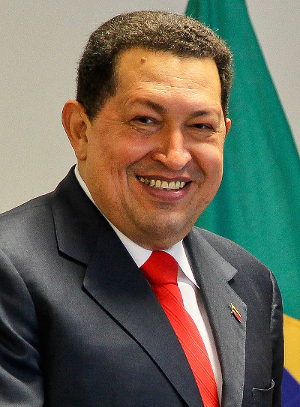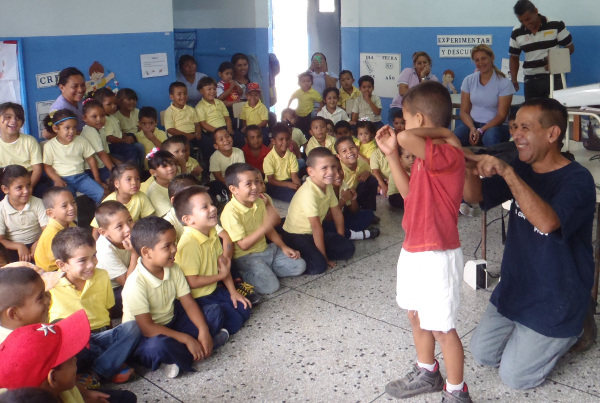 by Thales José Carneiro Fortes Diniz
Graduate in philosophy at the Federal University of Ouro Preto,
Mastering at the Central University of Venezuela: philosophy.Summary:
This paper describes the cooperative system called kibbutz in Israel, in order to answer questions about its origin and foundation, resources, social structure, and also highlight the goals, challenges, criticisms and the lessons that can be learned, including how to use economic and water resources.Keywords: Kibbutz, Zionism, Cooperatives.Introduction
by Thales José Carneiro Fortes Diniz
Graduate in philosophy at the Federal University of Ouro Preto,
Mastering at the Central University of Venezuela: philosophy.Summary:
This paper describes the cooperative system called kibbutz in Israel, in order to answer questions about its origin and foundation, resources, social structure, and also highlight the goals, challenges, criticisms and the lessons that can be learned, including how to use economic and water resources.Keywords: Kibbutz, Zionism, Cooperatives.Introduction The cooperative system called kibbutz, plural kibbutzim, which in Hebrew means to gather is a cooperative model which first began forming in Palestine in 1904, following an expulsion wave—motivated by Russian Czarism—of Jews from various parts of mostly Southern Russia, Europe and the surrounding areas. Although the cooperative system exists around the world, in no other country has intentional collective communities played such an important role as with the kibbutzim in Israel; in fact, the very foundation of the Jewish state in 1948 completely depended on this social phenomenon.The population of most kibbutzim is between 200 and 600 members, with some as few as 100 or as many as 1000. They also hire workers and accept volunteers. In 2010 the cooperative factories and farms of 270 kibbutzim accounted for 9 percent of the total production of Israel, around 8 billion dollars of which 40 percent derived from agriculture worth over $1.7 billion. In this article we consider how the members live and work together and its significance for others cooperatives. Most of this information was obtained from former residents, some of whom spent much of their lives in the kibbutzim and have relatives who are still part of this system.
The cooperative system called kibbutz, plural kibbutzim, which in Hebrew means to gather is a cooperative model which first began forming in Palestine in 1904, following an expulsion wave—motivated by Russian Czarism—of Jews from various parts of mostly Southern Russia, Europe and the surrounding areas. Although the cooperative system exists around the world, in no other country has intentional collective communities played such an important role as with the kibbutzim in Israel; in fact, the very foundation of the Jewish state in 1948 completely depended on this social phenomenon.The population of most kibbutzim is between 200 and 600 members, with some as few as 100 or as many as 1000. They also hire workers and accept volunteers. In 2010 the cooperative factories and farms of 270 kibbutzim accounted for 9 percent of the total production of Israel, around 8 billion dollars of which 40 percent derived from agriculture worth over $1.7 billion. In this article we consider how the members live and work together and its significance for others cooperatives. Most of this information was obtained from former residents, some of whom spent much of their lives in the kibbutzim and have relatives who are still part of this system. [caption id="attachment_2421" align="alignright" width="199"]
[caption id="attachment_2421" align="alignright" width="199"] Proutist Universal, 2002[/caption]By Saul Escobedo
Proutist Universal, 2002[/caption]By Saul EscobedoMore than ten years ago, someone recommended a book to me: After Capitalism: Prout's Vision for a New World by Dada Maheshvarananda. The book was written in English, a language which I didn’t know too well, but after thumbing through it, I decided to buy it.
The term “cooperative” in Monterrey, Mexico where I live, means a small convenience store at a public school where students can purchase primarily junk food if their parents send them off without a home-made lunch. Sometimes the word is also used to mean a pyramid scheme or something similarly dishonorable that no one should trust.
Until that moment I was a firm believer that the capitalist system represented the pinnacle of civilization. Suddenly “cooperativism” appeared to me as a viable alternative movement, upholding the values I’ve always embraced, including the wellbeing of every individual as well as of the entire community.
[caption id="attachment_2745" align="alignright" width="750"] From left to right, Front row: Jesus Medina, Nivia Clavijo Cruz, Asha (Araceli Collazo) and Rafa Cantú. Back row: Alberto Barrera, Saul Escobedo, Francisco Rios, Luz Elena Góngora, Isabel Cristina Reséndiz Briseño, Mateo Rangel.[/caption]
From left to right, Front row: Jesus Medina, Nivia Clavijo Cruz, Asha (Araceli Collazo) and Rafa Cantú. Back row: Alberto Barrera, Saul Escobedo, Francisco Rios, Luz Elena Góngora, Isabel Cristina Reséndiz Briseño, Mateo Rangel.[/caption]
 ReLOVEutionaries— "Sueño Para Venezuela". Here's the music video of our debut song, "Dream for Venezuela", from our new album that we made on 01/04/15. The lyrics were composed to uplift the spirits of the people, and in fact it's becoming quite popular in Caracas. We want to share it with you. With Sélène Viallard, Thales Fortes, and Alejandro Balan. Please click and listen!
ReLOVEutionaries— "Sueño Para Venezuela". Here's the music video of our debut song, "Dream for Venezuela", from our new album that we made on 01/04/15. The lyrics were composed to uplift the spirits of the people, and in fact it's becoming quite popular in Caracas. We want to share it with you. With Sélène Viallard, Thales Fortes, and Alejandro Balan. Please click and listen! Namaskar!
Namaskar!Starting now the Proutist Universal Global Office will publish a quarterly e-newsletter called "Global Impact: Prout News and Commentaries". The purpose of this online publication is to share the work of Proutists throughout the world, learn about new programs and strategies, encourage PROUT commentaries on current events and topics, and deepen our understanding of theory and practice through insightful analysis.
We are very excited about our first issue! Proutists from around the globe—Brazil, Germany, Guatemala, India, Korea, Norway, Philippines, Portugal, Romania, USA, and Venezuela—have contributed their amazing experiences in the field. From Nigeria, we learn about how AMURT workers are effectively applying Prout strategies in rural areas. And our analysis section cuts through the smokescreen of austerity programs being imposed by global financial institutions on debtor nations and offers some Prout alternatives.
If you are interested in receiving this quarterly newsletter, please click on the following link and sign up: http://eepurl.com/bal2a1. We encourage you to share this link with other Proutists who would be interested in receiving this newsletter. We also invite you to contribute to our Spring issue coming out in April. For more information about the newsletter and how you can submit your articles, email .
Dada Maheshvarananda for the Global Impact Team
 On April 2, 2015 PRIVEN Volunteer Sélène Viallard and I gave a one-hour interview about Prout and Venezuela via telephone from Caracas on independent community radio station KGNU in Boulder, Colorado, USA. The show was "It's The Economy", with brilliant host Liz Lane. At this link you can download the file or stream it mp3.
On April 2, 2015 PRIVEN Volunteer Sélène Viallard and I gave a one-hour interview about Prout and Venezuela via telephone from Caracas on independent community radio station KGNU in Boulder, Colorado, USA. The show was "It's The Economy", with brilliant host Liz Lane. At this link you can download the file or stream it mp3.
 Though the rebels came within a few meters of capturing Pérez, they failed. The military high command arrested Chávez and ordered him to tell the rest of his men to lay down their arms. Wearing his military uniform and red paratrooper beret, this unknown lieutenant-colonel was put in front of live television cameras for 72 seconds so that he could order all his men to surrender. What he said electrified the nation. Invoking the liberation hero Simón Bolívar, Chávez assumed full responsibility for the failure, which almost no Venezuelan leader had ever done before. Then he said that the objectives of this movement were not achieved "for now". As he went to prison, he had suddenly become a national hero to millions who realized that these soldiers were not hungry for power, rather they were risking their lives to save their country. A group of 62 retired generals ran full-page advertisements in newspapers attacking the government and supporting the coup leaders. In his cell Chávez began receiving hundreds of letters a week from supporters.
Though the rebels came within a few meters of capturing Pérez, they failed. The military high command arrested Chávez and ordered him to tell the rest of his men to lay down their arms. Wearing his military uniform and red paratrooper beret, this unknown lieutenant-colonel was put in front of live television cameras for 72 seconds so that he could order all his men to surrender. What he said electrified the nation. Invoking the liberation hero Simón Bolívar, Chávez assumed full responsibility for the failure, which almost no Venezuelan leader had ever done before. Then he said that the objectives of this movement were not achieved "for now". As he went to prison, he had suddenly become a national hero to millions who realized that these soldiers were not hungry for power, rather they were risking their lives to save their country. A group of 62 retired generals ran full-page advertisements in newspapers attacking the government and supporting the coup leaders. In his cell Chávez began receiving hundreds of letters a week from supporters.
By Viirabrata, Krsna and Mahaviira
 Viirabrata and son Mahaviira teaching kids organic gardening
Viirabrata and son Mahaviira teaching kids organic gardening
A framework to be happy
The educational process is a holistic phenomenon, where external objectivity is transformed into internal subjectivity. It goes beyond the school walls, or the family environment, or any other human relations. It goes even beyond that, straight into our own beings; it involves the universe around us and the way our souls interact with it. It does not depend on a particular school approach either, it simply happens as life does.
The Neohumanist Education framework and its learning methods encompass this holistic vision – physical, mental and spiritual – and aim for the liberation of all from exploitation sentiments (such as geo-sentiment and socio-sentiment) in order to achieve a free human society, in harmony and love within our environment.





